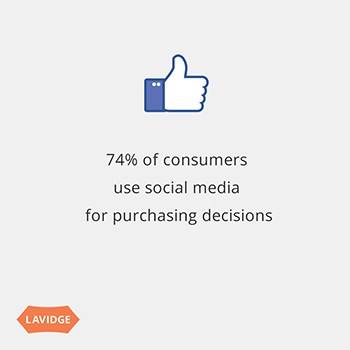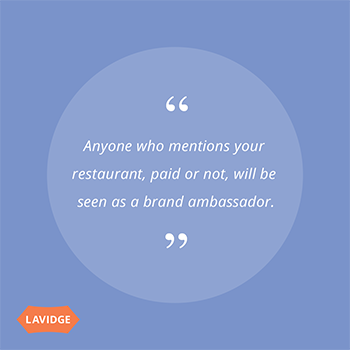Need fresh thinking? Help is a few keystrokes away.
4 Questions Answered: Influencer Outreach
You probably met your first social influencer in grade school.
He was one of the popular kids, perhaps a class officer or athletic star. One day, he wore a pair of sparkling new shoes to class. You wanted to be cool, too. So you bought the same shoes, as did many others. Then it spread to other schools and nearby communities. It wasn’t long before everyone was wearing the shoes.
This is the social epidemic described by Malcom Gladwell in The Tipping Point, and it’s at the heart of the latest trend of marketing through popular social influencers.
- Kim Kardashian shows off a new fashion label on her 100-million-strong Instagram account.
- Justin Bieber tells his 94 million Twitter followers about a new product.
- A well-followed blogger names a restaurant where she ate.
 Those are all examples of influential people plugging a brand—successful influencer outreach programs that recognize the power of piggybacking on a person’s popularity. Odds are, none of them plugged the products out of kindness; they were likely paid or received a gift or favor.
Those are all examples of influential people plugging a brand—successful influencer outreach programs that recognize the power of piggybacking on a person’s popularity. Odds are, none of them plugged the products out of kindness; they were likely paid or received a gift or favor.
Marketing through influencer outreach can be an extremely effective tactic within the restaurant business, and food service industry in general. According to a recent study, 74% of consumers use social media for purchasing decisions.* If someone you respect says they enjoyed a meal at a local eatery, you’ll be inclined to sample the restaurant, as well. This tactic for social publicity isn’t dissimilar to product placement in movies.
We know you have a lot of questions about influencer outreach. Here, we’ll answer them.
Q. Where do you find influencers?
Many influencers operate well-followed blogs and social media accounts. Like Kardashian and Bieber, some are famous celebrities. But there are many more influencers who aren’t as well known but have substantial loyal audiences—including many potential customers.
There are a number of online platforms and influencer networks that can help you locate and obtain an influencer for any budget. Here’s a sampling:
- neoreach.com
- getambassador.com
- tapinfluence.com
- oyeintelligence.com
Sometimes, regional up-and-coming influencers are worth seeking out. They are sometimes known as micro-influencers, and their voices can be powerful. You can often identify them by monitoring social media. Look for someone with more than followers. They need audience engagement to be effective. See who’s already talking about you or your restaurant competitors on their blogs or social accounts. Researching appropriate hashtags can also help locate local influencers who already might be advocates and who have a growing number of followers.
Q. How are influencers compensated?
Some well-known influencers receive large sums for mentioning or endorsing a business. It’s been reported that it costs more than $250,000 to have Kim Kardashian mention a business in a single Instagram post. What—your restaurant can’t afford that?
Local restaurant influencers may also come with a price tag, but smaller. You may be able to court them with gift certificates to your restaurant. Or invite them and their friends to join you for a meal. Give them a special restaurant swag bag—mugs and other items with your logo on them have a good chance of showing up in their photos.
You also can reward influencers by mentioning them on your own website and social media, thanking them and providing links to their accounts. That will build their audience, which is what influencers desire.
Q. Will any influencer work? 
No. Anyone who mentions your restaurant, paid or not, will be seen as a brand ambassador. Consider the kind of image you want to portray and your customer profile. If you want to attract a young, hip crowd, search for an influencer within that demographic. Similarly, if you operate a fine-dining establishment, you might need a more mature person to associate with your brand.
Q. Is paying for publicity legal?
Yes. Most consumers understand that when a blogger or celebrity mentions a business that there’s some kind of quid pro quo going on. More and more, you will usually find wording to indicate that there were favors for the plug. It’s not uncommon for influencers to state that they were compensated or received gifts for mentioning a restaurant.
Recently, The Federal Trade Commission (FTC) reportedly issued explicit warnings to 45 celebrities (including Sofie Vergara, Lindsay Lohan and Jennifer Lopez) who mentioned a brand but failed to reveal any accompanying payment. The FTC wrote letters to the offenders, warning that “if there is a material connection between the endorser and the marketer of a product—in other words, a connection that might affect the weight or credibility that consumers give the endorsement—that connection should be clearly and conspicuously disclosed.” The FTC defines material connections as “a business or family relationship, monetary payment, or the prevision of free products to the endorser.”
Need help?
LAVIDGE has extensive experience in social media. Our Phoenix-based full-service marketing and advertising agency can develop and manage a social media influencer solution for your brand, based on your restaurant's needs.
To learn more, give us a call at 480.998.2600 or send email to [email protected].
Don't
Steve Young, an app marketing specialist and writer for Entrepreneur, provides the following don’ts of influencer marketing.**
-
Don’t spam influencers with follow-ups. Yes, you should follow up with your influencer, but don’t be obnoxious about it. This means having a bit of patience, since most influencers are very busy people and may not have an opportunity to reply to your email in just a day or two.
-
Don’t forget to build influencer relationships. This is crucial, because it builds a relationship with them before you even think about asking them for help. Failing to build that relationship first will mean you come across as being spammy and pushy.
-
Don’t forget to set influencer guidelines. Make sure you have specific guidelines in place for how you should be promoted and especially tagged, to generate the maximum exposure possible.
-
Don’t rely solely on the influencer for buzz. You cannot rely on the influencer to generate the buzz that will make your campaign successful. Consider the influencer just a piece of the puzzle, albeit a possibly big piece.
*: ion.com, “11 Essential Stats for Influencer Marketing 2016”
**: Entrepreneur, “8 Do’s and Don’ts of Influencer Marketing”
2017 Southwest Food Service Marketing Report

This article is a brief abstract of our exclusive and authoritative study that takes the guesswork out of food service advertising and marketing. Rather than speculating about what will drive consumers to action, we've asked them.

